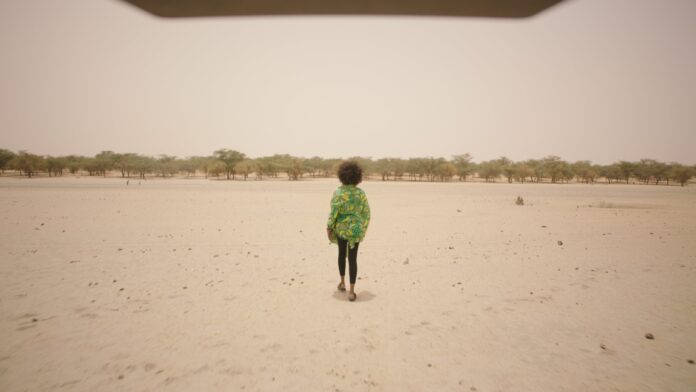“Restoration means putting nature at the heart of everything we do,” Nora Berrahmouni, Senior forestry officer for Africa at FAO, told a worldwide audience joining the Cine-ONU screening of ‘The Great Green Wall’.

In the film, Executive Producer Fernando Meirelles (Academy Award-Nominated Director of City of God & The Constant Gardener) and Malian musician/activist Inna Modja take us on an epic journey along Africa’s Great Green Wall — an ambitious project to grow a ‘wall’ of trees stretching across the entire width of the continent to restore land and provide a future for millions of people.
From Dakar to Addis Ababa
Traversing Senegal, Mali, Nigeria, Niger and Ethiopia, Modja follows the Great Green Wall through Africa’s Sahel region — one of the most vulnerable places on earth (temperatures are rising 1.5 times faster than the global average) — laying bare the acute consequences of severe land degradation and accelerating climate change.
On 15 June, the United Nations and the European Commission organized an online screening of ‘Great Green Wall’ to mark the launch of the UN Decade on Ecosystem Restoration and World Day to Combat Desertification and Drought. The screening was followed by a passionate and inspirational discussion with representatives from the African Union, the United Nations and the European Commission.

The Great Green Wall is an African born, African led initiative that has brought together scientists, governments, and NGOs across the world. Elvis Tangem, coordinator of the initiative, praised the collaboration between the UN, the EU and the AU. “Its value can’t be measured in terms of money, it is about stopping the disintegration of cultures and putting the heart and soul back into biodiversity and conservation.”
The ambition of the Great Green Wall is to grow an 8,000 km wall of trees across the Sahel to halt the desertification of the region, and by doing so make a vital contribution to the UN Sustainable Development Goals (SDGs). It is a lifeline for people who are being forced to flee their homelands. According to Sandra Kramer, Director Africa, Department of International Partnerships, EC, “the EU is a proud supporter of the GGW initiative. We want to build back better and greener and increase resilience after the pandemic. We need to support small scale farmers, restore the land and provide much needed food, stability, and security for the region.”
United to accelerate the Great Green Wall
In response to a question on how individuals can contribute, Elvis Tangem said that “Thousands of young people are coming together to support the Great Green Wall. We have been working with hundreds of organisations and supporting the activities of younger generations. Anybody who wants to get involved on the ground, get in contact with us, and put your hands in the soil”.
Sarah Toumi, monitoring officer for the Great Green Wall Accelerator at the UN Convention to Combat Desertification (UNCCD), advised the audience, “as an individual why not visit the GGW accelerator platform before COP26 to identify project owners and potential partners and discover the five pillars of the GGW. Anyone can be part of the process.”

Nora Berrahmouni reminded us of the responsibility we all have. “The Great Green Wall is a global issue and is a result of global processes. Advocate to change policies that cause land degradation. Desertification is a result of human activities and exacerbated by climate change and is being replicated all over the world.”
Veronika Šafránková, Head of the United Nations Environment Programme, Brussels Office, concluded the event with a powerful message for everyone. “Three billion people are affected by ecosystem degradation. We must rebalance our relationship with nature. It is the basis of our survival. The journey must continue with concrete actions.”
Additional links:
“Olympic Forest”: International Olympic Committee boosts the Sahara’s Great Green Wall
“Great Green Wall”: All about the Great Green Wall initiative




